RISK ASSESSMENT FOR LIVING MODIFIED ORGANISMS (LMOs)
EXPERTS CALL FOR REGIONAL POLICIES TO HARMONISE BIOSAFETY FRAMEWORKS FOR TRANSBOUNDARY ACTIVITIES
From October 21, delegates from 196 Parties to the Convention on Biological Diversity (CBD) convened in Panama City for the 27th meeting of the Subsidiary Body on Scientific, Technical and Technological Advice SBSTTA -27 and the first meeting of the Subsidiary Body on Article 8(j) and other Provisions of the Convention on Biological Diversity related to Indigenous Peoples and Local Communities.
Gene Convene Global Collaborative hosted a side event at #SBSTTA27 to highlight key methodological aspects of risk assessment for living modified organisms. Of particular importance was those containing engineered gene drives.
The event was co-hosted by the African Genetic Biocontrol Consortium.
The session highlighted ongoing scientific efforts in the African context on designing environmental monitoring strategies and integration of ethics, public participation and broad stakeholder concerns, which are critical aspects of operationalizing the additional voluntary guidance material welcomed by Parties at the Conference of Parties last year.
Dr. Fredros Okumu, Professor of Vector Biology at the University of Glasgow, made his presentation on “Ethics, public participation and regional co-ordination in the advancement of gene drives for malaria control in Africa.
He noted that while gene-drive technologies represent one of the most ambitious frontiers in vector biology with the potential to permanently suppress or modify Anopheles populations and save millions, technological capability alone does not confer legitimacy.
He emphasised ethical, participatory and regionally co-ordinated governance as determinants of whether such innovations truly serve public good.
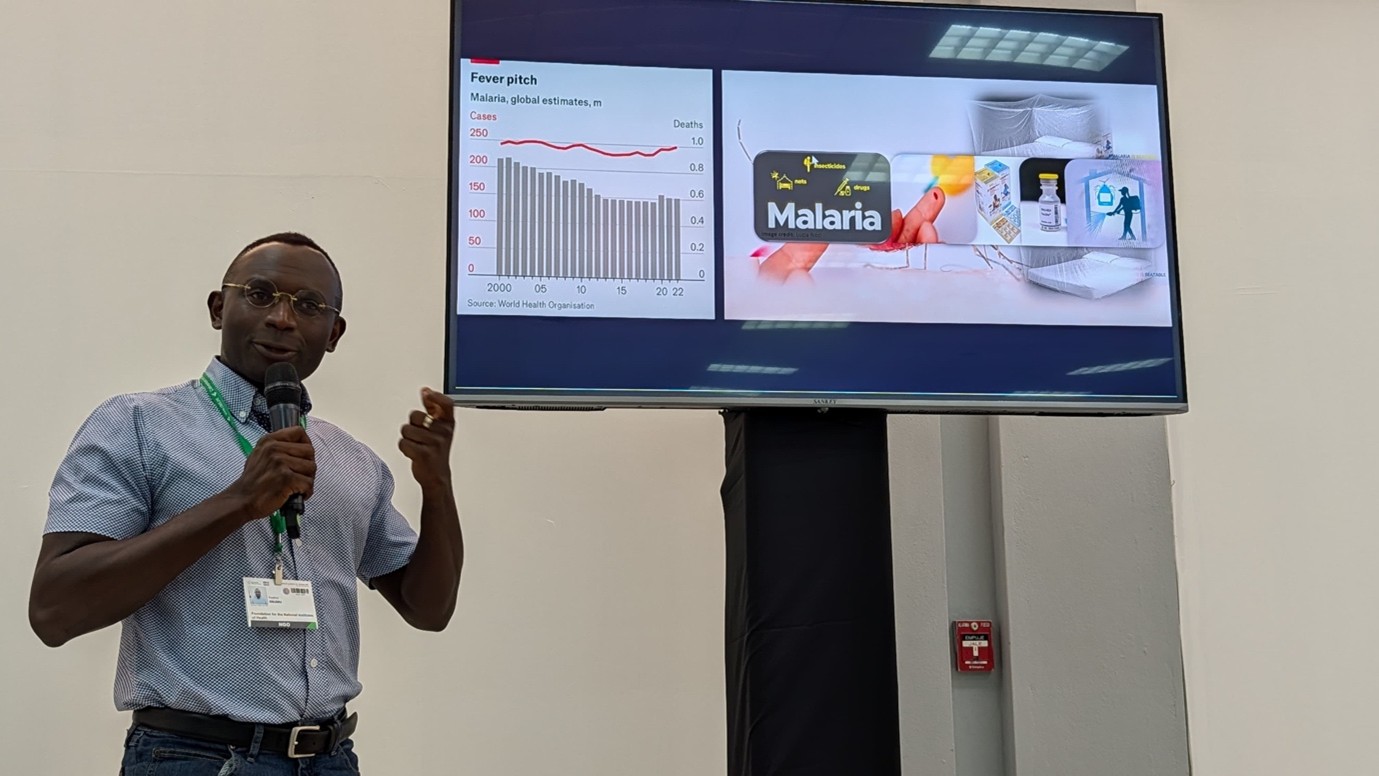
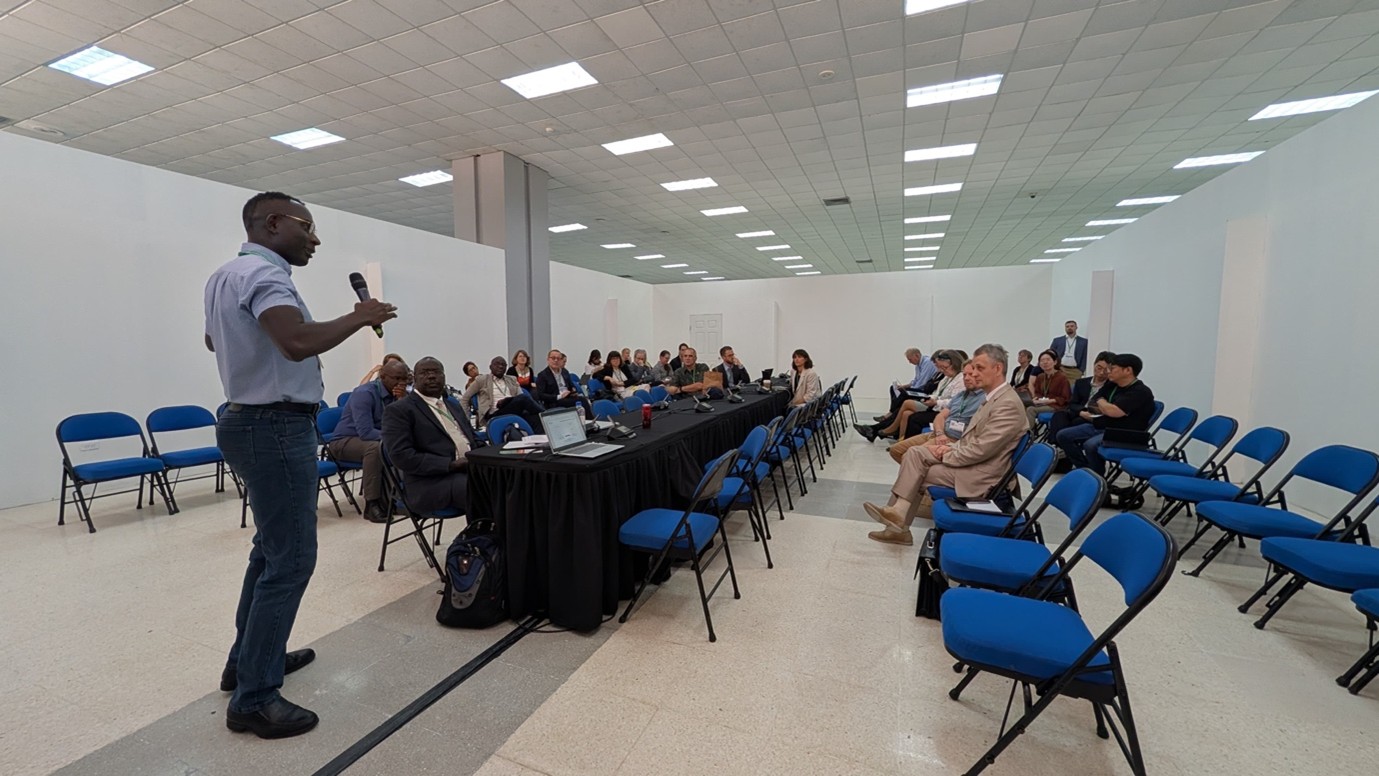
Dr. Fredros Okumu, Professor of Vector Biology at the University of Glasgow, speaks to delegates.
The Biosafety Technical Series 7 was launched at SBSTTA 27. The series was launched to serve as additional guidance material to support case by case risk assessments of living organisms containing engineered gene drives.
The publication is hoped will advance then implementation of relevant provisions of the Cartagena Protocol.
Astrid Schomaker, Executive Secretary of the Convention on Biological Diversity (CBD) notes that “ It is essential to ensure that tapping the potential of LMOs containing engineered gene drives does not come at the expense of people and nature.”
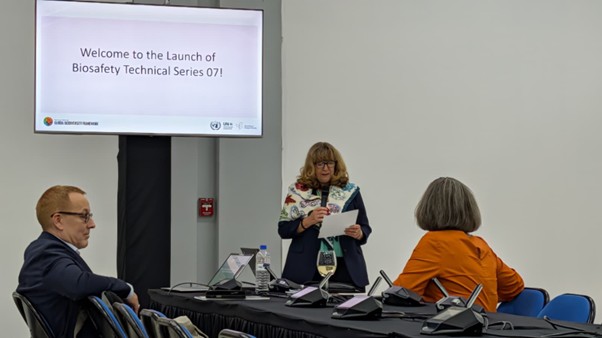
Astrid Schomaker, Executive Secretary of the Convention on Biological Diversity during the launch of the Biosafety Technical Series 07
She notes that the challenge is to reconcile these biotechnological innovations with the precautionary approach and other provisions of the Cartagena Protocol on Biosafety.
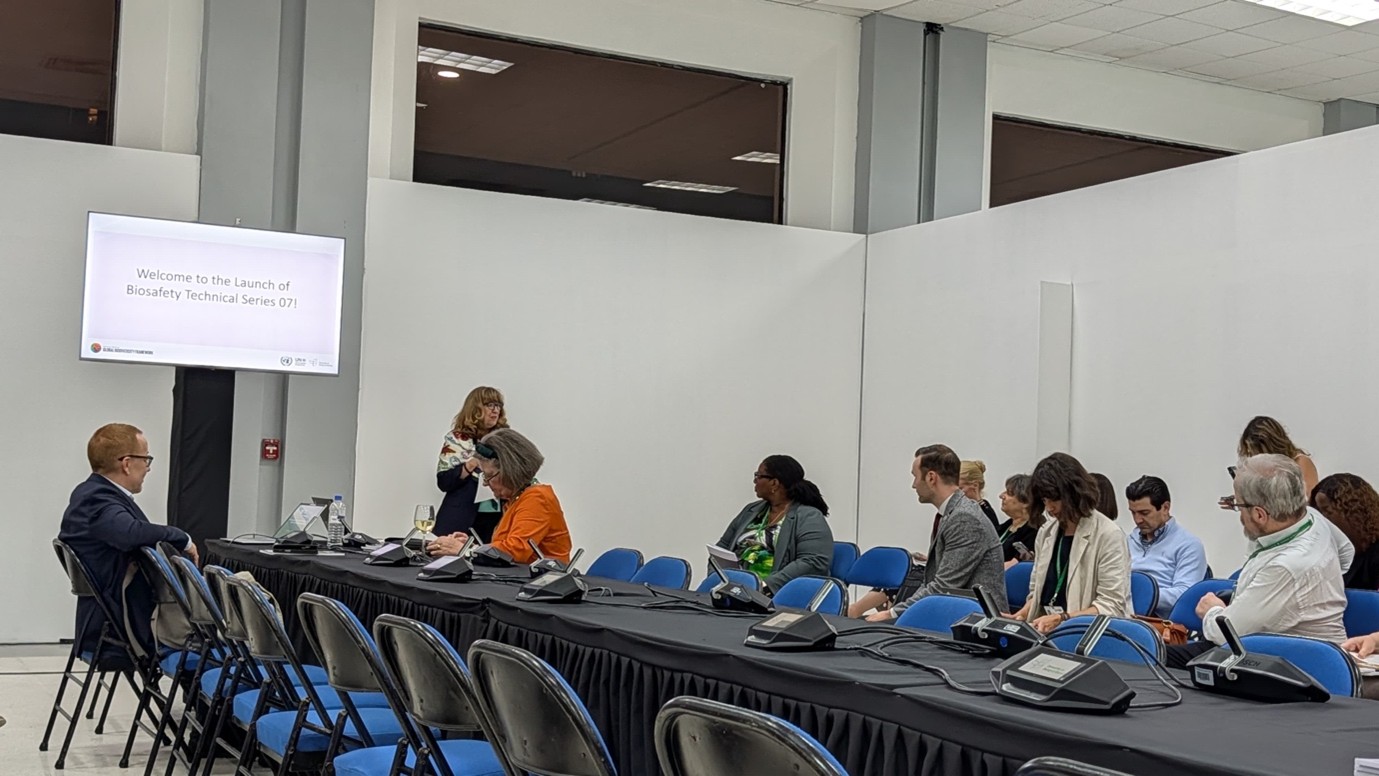
Technical 7 series discusses among others, strategies for engineered gene drives as well as opportunities and risk concerns, as well as identification of risk management strategies. This guidance will be available soon in all the official UN languages.
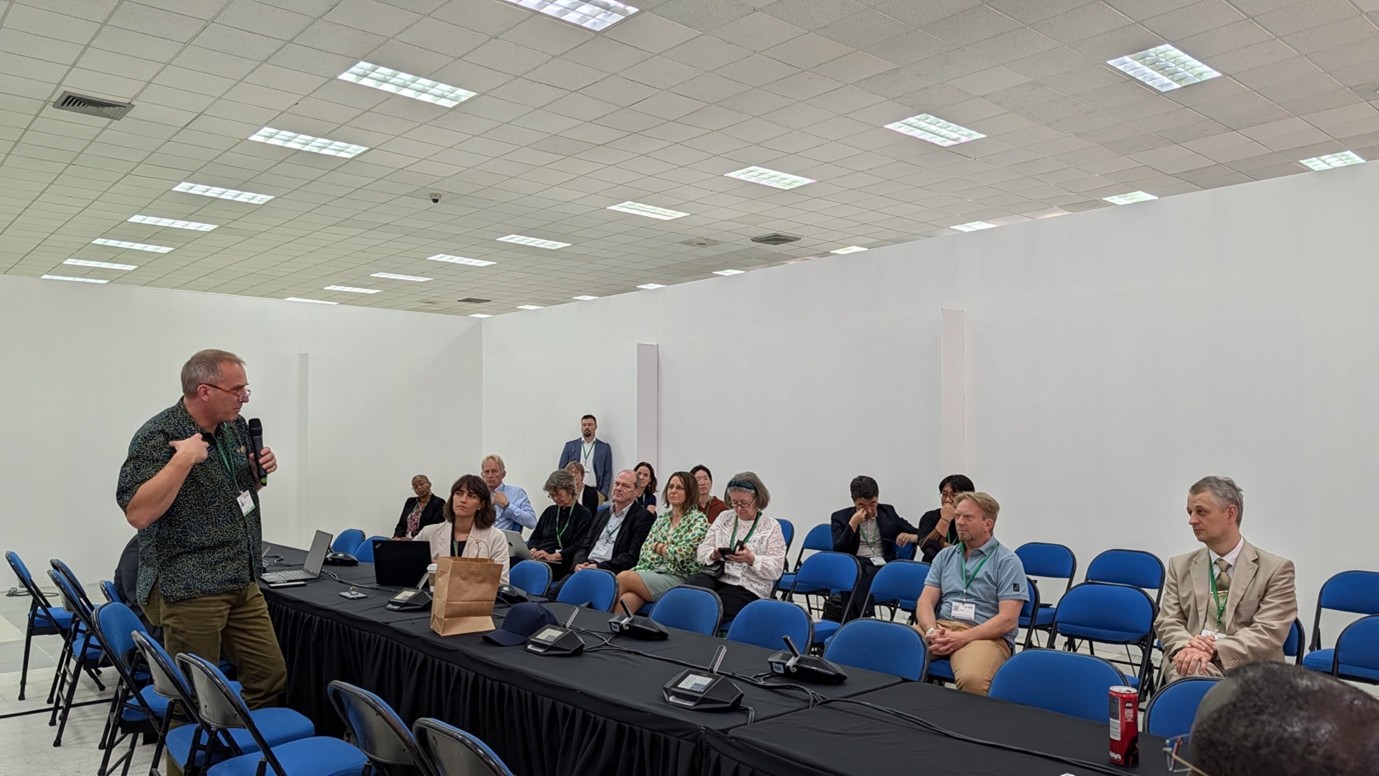
Werner Schenkel from the German Federal Office of Consumer Protection and Food Safety makes a presentation on” Problem Formulation and the Foundation for Case-by-Case Risk Assessment”
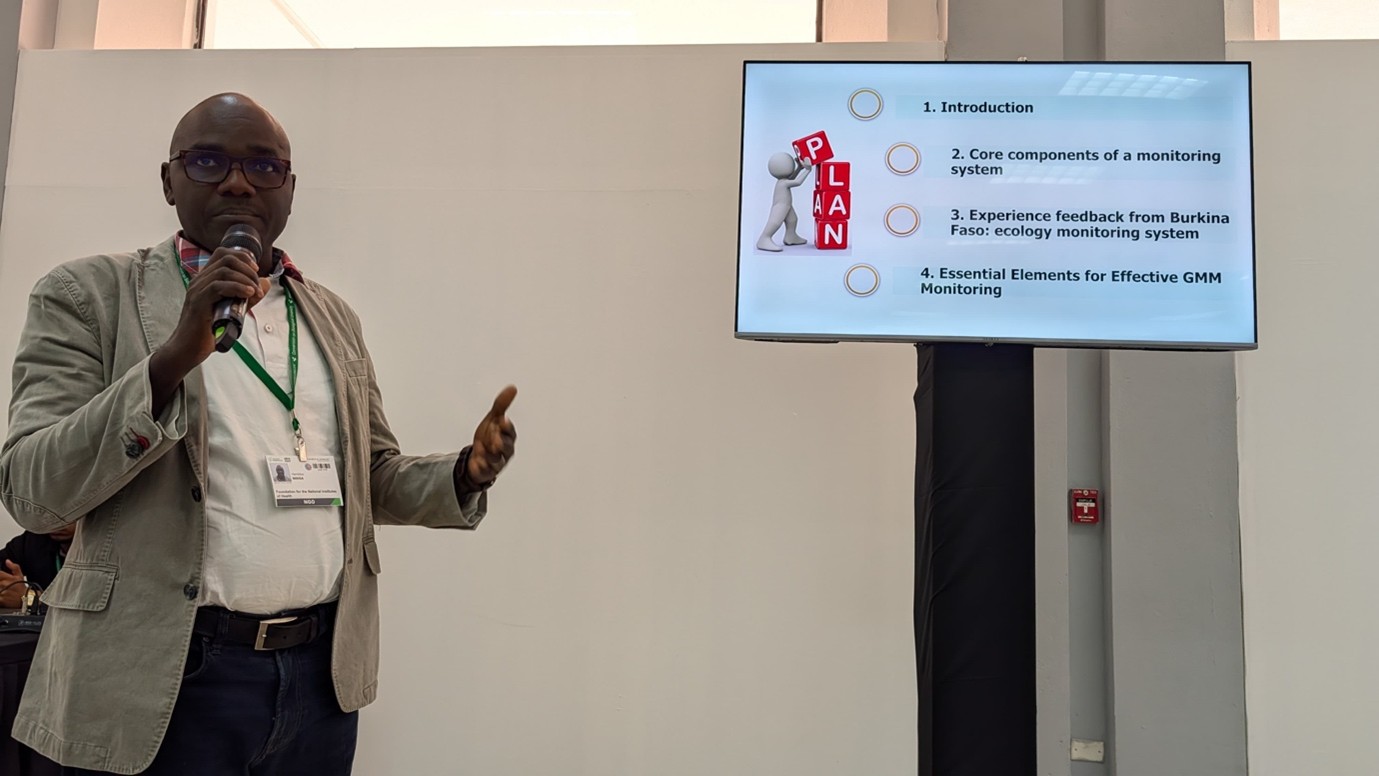
Hamidou Maiga: CNRST- Burkina Faso
He presented on “Experiences with designing Monitoring Systems for insect control in African countries
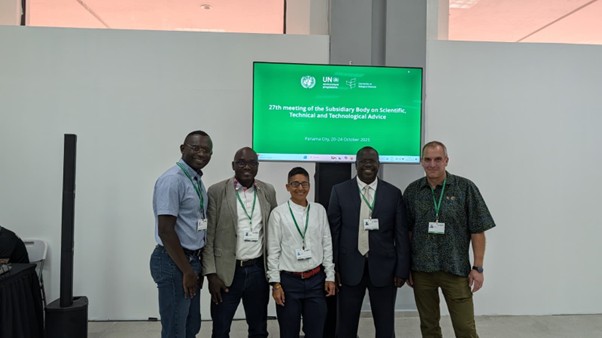
The speakers in the session “Operationalizing the Voluntary Guidance for Gene Drive Risk Assessment.” The session was moderated by Dr. Willy Tonui, Chairman and Executive Director of Environmental Health Safety Limited. He emphasized on the need for transboundary governance of engineered gene drive organisms. He highlighted the scope of transboundary movements of GMOs and Gene Drives, which include Intentional, legal, unintentional and illegal.
He underscored the need for regional legislation/ policies to explore harmonization of biosafety frameworks to facilitate transboundary activities of LMOs.
Dr. Brinda Dass from the Foundation for the National Institutes of Health, is one of the nominated observers.
She said:
“We look forward to working with risk assessors and decision makers on capacity building and operationalizing this guidance material to ensure safe and effective genetic biocontrol technology is developed.”
